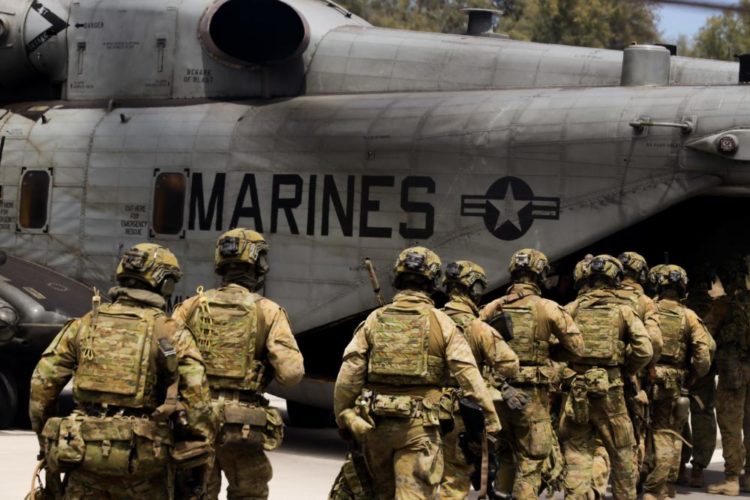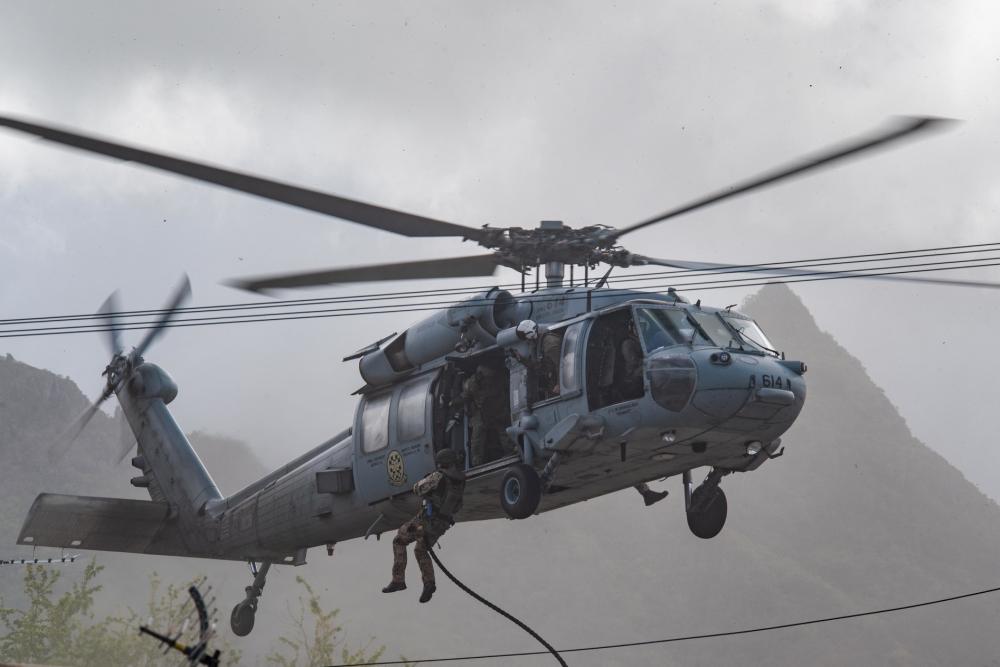Enhances deterrence by recapitalizing and modernizing the US nuclear triad; ensuring the safety, security, and reliability of our nuclear stockpile, delivery systems, and infrastructure; increasing capacity in theater and homeland missile defense; and strengthening nonproliferation programs.
The defense policy bill aims to strengthen deterrence by recapitalizing and modernizing the American nuclear triad. It will also ensure the safety, security, and reliability of the US nuclear stockpile, delivery systems, and infrastructure. Likewise, increase theater and homeland missile defense capacity and strengthen nonproliferation programs.
“I look forward to improving the bill even further on the Senate floor,” Reed said, concluding his statement.
See below for a quick rundown of its subcommittee’s 2023 National Defense Act.
Subcommittee on Air-Land
The Air-Land subcommittee, led by Chairwoman Tammy Duckworth (D-IL) and Ranking Member Tom Cotton (R-AR), aims to continue accelerating the modernization of the Army and Air Force by prioritizing research and development of future capabilities in air power, land warfare capabilities, countering evolving threats, and further enhancing munitions.
Subcommittee on Cybersecurity
The cybersecurity subcommittee, run by Chairman Joe Manchin (D-WV) and Ranking Member Mike Rounds (RSD), will focus on strengthening the cybersecurity posture of the DOD and the defense industrial base. Its primary needs include responding to the cyber threat environment by adopting innovative and modern cybersecurity strategies, tools, and technologies and filling in critical cyber personnel roles.
Subcommittee on Emerging Threats And Capabilities
The subcommittee, under the leadership of Chairman Mark Kelly (D-AZ) and Ranking Member Joni Ernst (R-IA), will be overseeing many critical priorities, including assisting in the development of new capabilities required for long-term strategic competition with China and Russia, facilitating security cooperation with foreign partners, and providing resources for special operations forces. It will also strengthen support for Ukraine and NATO member states.
Subcommittee on Personnel
Under the leadership of Chairwoman Kirsten Gillibrand (D-NY) and Ranking Member Thom Tillis (R-NC), the personnel subcommittee will move forward with proposals to strengthen the all-volunteer force and improve the quality of life for service members, their families, and the DOD civilian workforce.
Subcommittee on Readiness And Management Support
The readiness and management support subcommittee, led by Chairman Tim Kaine (D-VA) and Ranking Member Dan Sullivan (R-AK), will focus on improving the nation’s readiness and reforming acquisition policy, contracting, and industrial base operations. It will also optimize energy, environmental, health security, supply chain, and stockpile resilience. In addition, military construction and bolstering operations and maintenance will be prioritized as part of the subcommittee.
Subcommittee on Seapower
The seapower subcommittee, under the leadership of Chairwoman Mazie Hirono (D-HI) and Ranking Member Kevin Cramer (R-ND), will dedicate its resources to continuing previous years’ efforts on the Navy and Marine Corps’ ability to implement the National Defense Strategy, such as surface and undersea warfare, aircraft procurement, extending fund spending, and certification before the Marine Mammal System’s termination.
Subcommittee on Strategic Forces
Finally, the strategic forces subcommittee will continue to support nuclear modernization. Under the bipartisan leadership of Chairman Angus King (I-ME) and Ranking Member Deb Fischer (R-NE), it will also focus on enhancing the nation’s Strategic and Space Defense Activities, Missile Defense, Nonproliferation Efforts, Modernization Efforts, the Department of Energy, Nuclear Weapons Stockpile Matters, Budget and Financial Management Matters, and Environmental Security.
You can access and read the full document here if you want more in-depth information.











COMMENTS